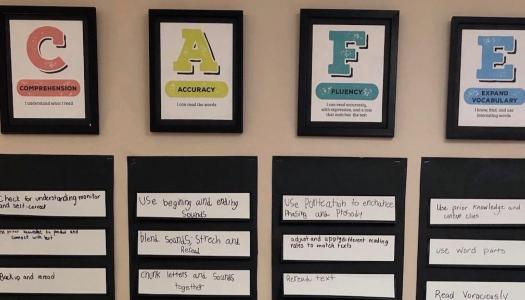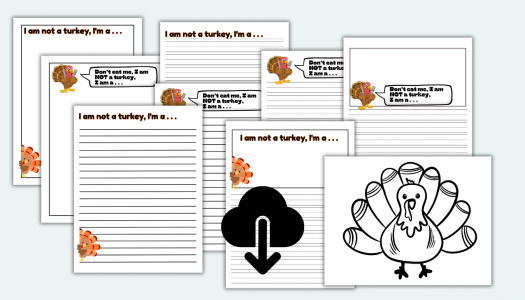
Lori Sabo
Have you ever heard a student say they don’t like reading? When I hear this from our kindergarten through fifth graders, I tell them that probably isn’t true. Perhaps they just don’t like learning to read. And I get that!
Learning any new skill can be difficult, daunting, and discouraging. But I am convinced that if they have ever loved something that was read aloud to them (and I read to them all in the library), they don’t really hate reading. They just don’t like doing it themselves because it isn’t fun yet.
The swiftest way to make it easier and more enjoyable is to increase their reading volume, and one of the best ways to increase reading volume is through audiobooks.
There are many reasons why we should embrace audiobooks. Here are six that show why they might be an essential strategy to creating lifelong readers.
Audiobooks…
- allow for multitasking. We can easily read with our ears while doing chores, exercising, commuting, and making art.
- protect the love of story. Students who don’t love books yet because they read slowly, don’t have time to read, or still find reading difficult are easily transported into the world of a book when an excellent narrator guides them.
- model fluency and provide a chance to internalize language patterns. Vocabulary is built and correct pronunciation is modeled. All these benefit a student’s future speaking and writing.
- increase comprehension. I recently listened to Glitch by Laura Martin. It is a fun, time-traveling adventure told from two perspectives. It was much easier to comprehend the distinct viewpoints because of two excellent narrators.
- relieve eye strain and build attention span. Since listeners aren’t working to decode and comprehend text, they are able to work with the author/narrator to create strong mental images of the story. This is especially valuable to this generation who doesn’t know life without screens, and to students with visual impairments or learning challenges, like dyslexia.
- benefit the brain. A recent study published in the Journal of Neuroscience showed stories stimulated the same cognitive and emotional areas of the brain whether they were read or listened to. Wow. That alone confirms audiobooks’ value.
One final note: The public library system has a vast number of audiobooks. So, a lack of money won’t preclude anyone from accessing these wonderful resources. And with the Libby app, patrons don’t even have to physically travel to the library; the audiobooks are readily available on their devices.
So, we need not think of audiobooks as a second-rate form of reading. They are an authentic, valuable, wonderful way to make prolific readers of all ages.
News From The Daily CAFE
Concept Mapping with the CAFE Acronym
Creative Writing—Disguise the Turkey
Online Literacy Resources for Students









